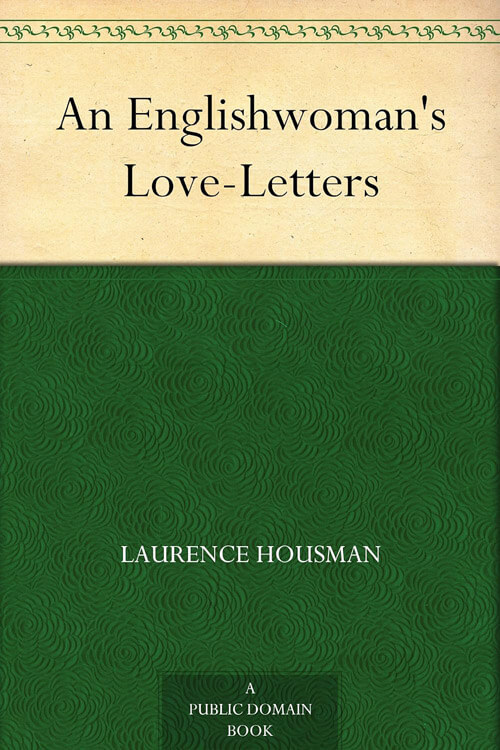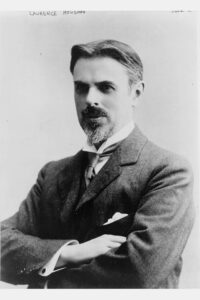
An Englishwoman’s Love-Letters
An Englishwoman’s Love-letters is a 1900 novel by Laurence Housman, initially published anonymously. It was a scandal in its time due to its frankness, in which excitement turned to disappointment as the public learned the author was no Englishwoman but Housman.
One year later, in 1901, a parody of the book, entitled Another Englishwoman’s Love-letters, written by Barry Pain, was published by T. Fisher Unwin. Winston Churchill wrote a P.S. in a letter of 22 January 1901 to his mother, Lady Randolph Churchill: “I have been reading ‘An English Woman’s Love Letters’ Are all Mothers the same?”
Read or download Book
Laurence Housman
Laurence Housman (18 July 1865 – 20 February 1959) was an English playwright, writer, and illustrator whose career stretched from the 1890s to the 1950s.
Biography
He studied art in London and worked mainly as an illustrator during the first years of his career before shifting focus to writing. He was a younger brother of the poet A. E. Housman, and his sister and fellow activist in the women’s suffrage movement was writer/illustrator Clemence Housman. Housman turned more and more to writing after his eyesight began to fail. His first literary success came with the novel An Englishwoman’s Love-letters (1900), published anonymously. He then turned to drama with Bethlehem (1902) and was to become best known and remembered as a playwright. His other dramatic works include Angels and Ministers (1921), Little Plays of St. Francis (1922), and Victoria Regina (1934), which was even staged on Broadway. Housman’s play, Pains and Penalties, about Queen Caroline, was produced by Edith Craig and the Pioneer Players. Some of Housman’s plays were scandalous for depicting biblical characters and living members of the Royal House on stage, and many of them were performed only privately until the subsequent relaxation of theatrical censorship.
In 1937, the Lord Chamberlain ruled that no British sovereign could be portrayed on the stage until 100 years after his or her accession. For this reason, Victoria Regina could not be staged until the centenary of Queen Victoria’s accession, 20 June 1937. This was a Sunday, so the premiere took place the next day. Housman also wrote children’s fairy tales, such as A Farm in Fairyland (1894), and fantasy stories with Christian undertones for adults, such as All-Fellows (1896), The Cloak of Friendship (1905), and Gods and Their Makers (1897). A prolific writer with around a hundred published works, his output eventually covered all kinds of literature, from socialist and pacifist pamphlets to children’s stories. He wrote an autobiography, The Unexpected Years (1937), which, despite his record of controversial writing, said little about his homosexuality, the practice of which was then illegal. After his brother’s A.E. died in 1936, Laurence was made literary executor and, over the next two years, brought out further selections of poems from his brother’s manuscripts.
His editorial work has been deprecated recently: “The text of many poems was misrepresented: poems not completed by Housman were printed as though complete; versions he cancelled were reinstated; separate texts were conflated; and many poems were mistranscribed from the manuscripts.”






